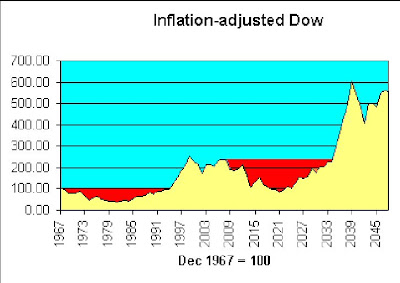
This is the disputed territory of Arunachal Pradesh (red) - currently Indian, formerly part of Tibet, and included in Tibet on modern Chinese maps. See "Better Days" blog post (Nov 2004) here; a current Indian political comment here; Wikipedia entry on the region here. >>>>>>>>>>>>>>>>>>>>>>>>>>>>>>>>>>>>>>>>>>>>>>>>>
Tibetans number an estimated 5 - 7 millions. The official Chinese 2000 Census has the Chinese Han population in the "Tibetan Autonomous Region" (TAR) as merely 6% of the total. However, as this illuminating BBC guide explains, the TAR is not Tibet as its government in exile defines it. The larger Tibetan area including Amdo and Kham contains 6.5 million Tibetans and 8.5 million Chinese immigrants. And there may be bigger plans: "Chinese demographers back in the 1980s estimated that Tibet could provide living space for 100 million Chinese."
Tibet is important because of timber, minerals, extra living space for Chinese - and it houses up to a third of China's nuclear arsenal. A major interest is water, because Western China is very dry; among other plans, one is a hydroelectric plant exploiting the Brahmaputra River, which further down flows through Bangladesh and ultimately joins the Ganges. The Chinese claim it will have twice the output of the Three Gorges Dam. "Work is tentatively scheduled to begin in 2009 but has been described as a 'declaration of war' against India and Bangladesh. One of Tibet's most sacred lakes, Yamdrok Tso, has already been mined, tunnelled and used for hydroelectric development."
The population of Arunachal Pradesh (formerly a part of the Indian state of Assam) is slightly over 1 million. The area was a lifeline to China in WW2 after the Burma Road was cut off by the Japanese in 1942. It is well watered and forested.
UPDATE
Climate change already threatens to reduce the great northern Indian rivers to "seasonal water flows", without further constriction by Chinese projects. The potential extra disruption is discussed in this Guardian article from a year ago.

 It's the volatility that does you in. As Keynes said, "In the long run..."
It's the volatility that does you in. As Keynes said, "In the long run..."